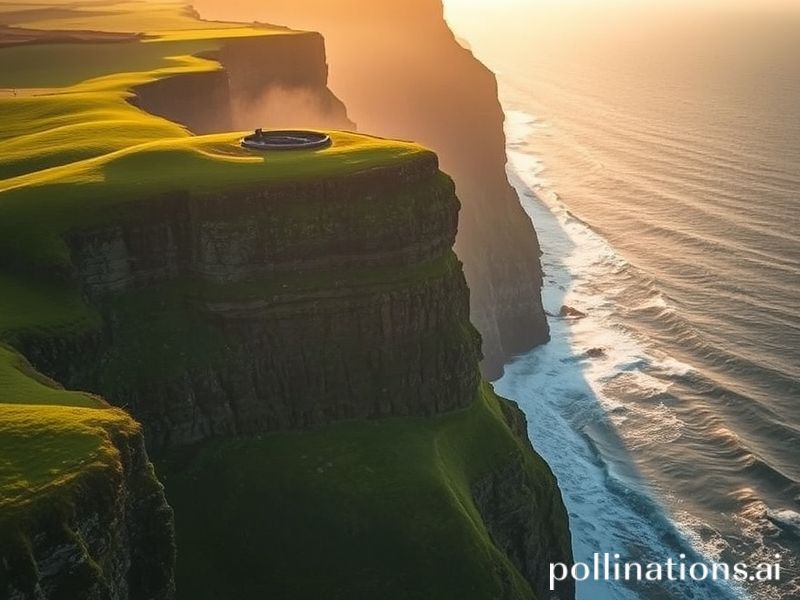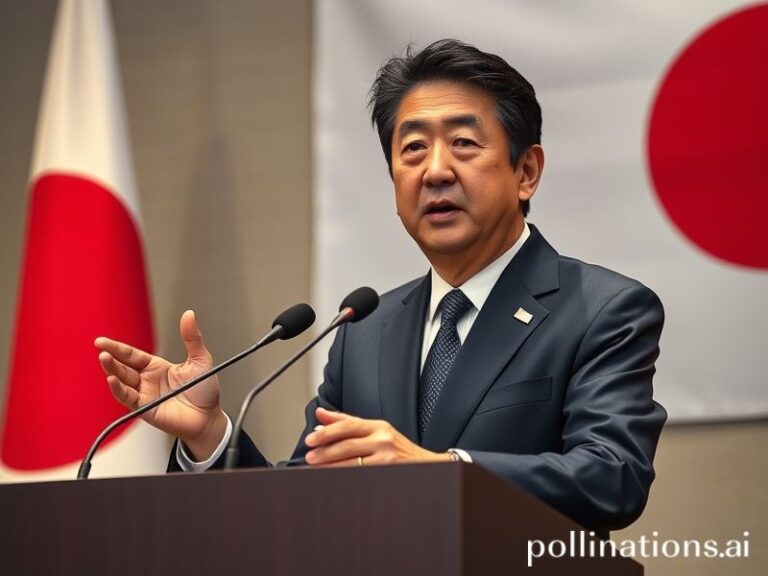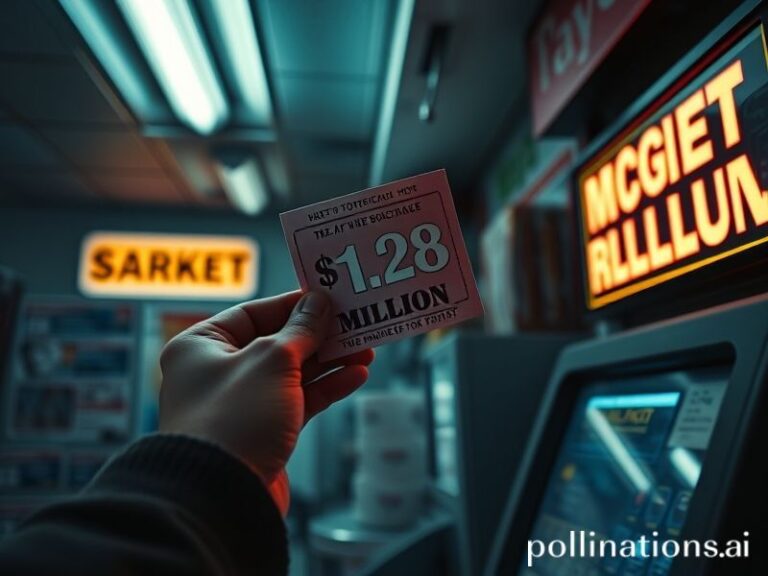Ireland: How a Tiny Island Turned Heartbreak into a Hedge Fund and Convinced the World to Pick Up the Tab
Ireland, that verdant island dangling off Europe’s northwestern fringe like an afterthought God forgot to edit out, has spent the last century turning national neuroses into a surprisingly lucrative export. While the rest of us were busy weaponising nostalgia or monetising trauma, the Irish quietly packaged both, slapped a shamrock on it, and sold it back to the world with a wink and a 12-year single malt. The result? A country whose GDP per capita now surpasses that of the United States, despite having roughly the population of Alabama and weather that would depress a Norwegian.
From an international vantage, Ireland has become a kind of geopolitical Switzerland for the terminally online: neutral enough to host every American tech giant’s European headquarters, yet sufficiently sentimental to keep the diaspora wiring cash home like emotional remittances. Dublin’s docklands—once the departure point for coffin ships—now gleam with the polished glass of Google, Meta, and Pfizer, all of whom came for the 12.5% corporate tax rate and stayed for the convenient fiction that they’re not really in the EU when Brussels comes knocking. It’s the fiscal equivalent of claiming you’re “just holding the cocaine for a friend,” and somehow it works.
Globally, Ireland’s greatest trick has been convincing the world it’s still the underdog while quietly rigging the game. Every St. Patrick’s Day, rivers from Chicago to Christchurch run green with food dye and performative solidarity, as though half the planet were mourning a potato famine none of them lived through. Meanwhile, back on the old sod, the Taoiseach poses for photos with whichever US president needs an ethnic prop that year, smiling the tight smile of a man who knows the bar tab’s ultimately being picked up by Apple’s Irish shell company. The spectacle is so seamless you’d swear P.T. Barnum had been reborn as a tax attorney.
Of course, the world keeps returning to Ireland’s story because it offers a rare narrative arc that ends—provisionally—in optimism. The Good Friday Agreement, once scribbled on the back of a napkin by exhausted negotiators, now functions as a kind of IKEA instruction manual for ceasefires everywhere from Bogotá to Belfast. Even Brexit, that slow-motion car crash in which Britain keeps discovering new ways to reverse over its own foot, has elevated Ireland from provincial subplot to co-author of the plot twist. Suddenly the Irish border—previously a footnote in most atlases—became the hinge on which the entire European project teetered. Brussels discovered it cared more about County Fermanagh than Kent, and London learned that colonial chickens eventually roost, usually in customs declarations.
There is, naturally, a darker punchline. Ireland’s newfound prosperity has merely relocated its tragedies rather than abolished them. The same week Dublin announces record pharmaceutical exports, the rental market collapses into a feudal parody where tech workers bunk four to a “period flat” while refugees sleep in airport terminals. The country that once exported people now exports eviction notices, digitally delivered from a Cayman-registered landlord. Even the pints of Guinness, that foamy emblem of Irish authenticity, are increasingly brewed in… well, let’s just say the water’s less Liffey, more logistics hub.
And yet the brand endures. In a world starved for coherent identities, Ireland sells the comforting illusion that history can be metabolised into heritage without indigestion. Every diaspora tourist who clutches a Claddagh ring at Shannon Airport is purchasing a membership card to an emotional cartel older than the EU itself. The Irish, ever gracious, accept the compliment—and the foreign currency—with a straight face. After all, when life gives you centuries of oppression, you might as well distil it into something 80 proof and charge duty free.
In the final accounting, Ireland matters because it has mastered the art of weaponised charm: a small island that convinced the planet its woes were somehow universal, then invoiced accordingly. The cheque cleared, the pub closed, and somewhere a fiddle played a lament for a past that never quite existed. Sláinte, humanity—you’ve been outmanoeuvred by a country that turned heartbreak into a hedge fund.







